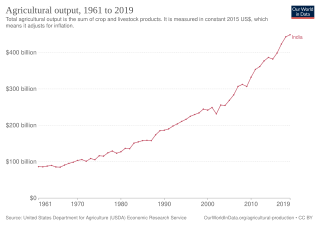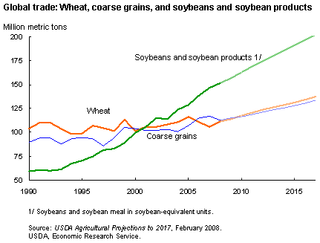
Laos, officially the Lao People's Democratic Republic, is the only landlocked country in Southeast Asia. At the heart of the Indochinese Peninsula, Laos is bordered by Myanmar and China to the northwest, Vietnam to the east, Cambodia to the southeast, and Thailand to the west and southwest. Its capital and largest city is Vientiane.

Laos is a country in and the only landlocked nation in mainland Southeast Asia, northeast of Thailand and west of Vietnam. It covers approximately 236,800 square kilometers in the center of the Southeast Asian peninsula and it is surrounded by Myanmar (Burma), Cambodia, the People's Republic of China, Thailand, and Vietnam.

The member states of the United Nations comprise 193 sovereign states. The United Nations (UN) is the world's largest intergovernmental organization. All members have equal representation in the UN General Assembly.

2004 (MMIV) was a leap year starting on Thursday of the Gregorian calendar, the 2004th year of the Common Era (CE) and Anno Domini (AD) designations, the 4th year of the 3rd millennium and the 21st century, and the 5th year of the 2000s decade.

The economy of Madagascar is US$9.769 billion by gross domestic product as of 2020, being a market economy and is supported by an agricultural industry and emerging tourism, textile and mining industries. Malagasy agriculture produces tropical staple crops such as rice and cassava, as well as cash crops such as vanilla and coffee.

The Palestinian territories are the two regions of the former British Mandate for Palestine that have been occupied by Israel since the Six-Day War of 1967, namely the West Bank and the Gaza Strip. The International Court of Justice (ICJ) has referred to the West Bank, including East Jerusalem, as "the Occupied Palestinian Territory", and this term was used as the legal definition by the ICJ in its advisory opinion of July 2004. The term occupied Palestinian territory was used by the United Nations and other international organizations between October 1999 and December 2012 to refer to areas controlled by the Palestinian National Authority, but from 2012, when Palestine was admitted as one of its non-member observer states, the United Nations started using exclusively the name State of Palestine. The European Union (EU) also uses the term "occupied Palestinian territory". The government of Israel and its supporters use the label "disputed territories" instead.

The International Covenant on Civil and Political Rights (ICCPR) is a multilateral treaty that commits nations to respect the civil and political rights of individuals, including the right to life, freedom of religion, freedom of speech, freedom of assembly, electoral rights and rights to due process and a fair trial. It was adopted by United Nations General Assembly Resolution 2200A (XXI) on 16 December 1966 and entered into force on 23 March 1976 after its thirty-fifth ratification or accession. As of June 2022, the Covenant has 173 parties and six more signatories without ratification, most notably the People's Republic of China and Cuba; North Korea is the only state that has tried to withdraw.

The United Nations General Assembly declared 2004 as the International Year to Commemorate the Struggle against Slavery and its Abolition.

New Rice for Africa (NERICA) is a cultivar group of interspecific hybrid rice developed by the Africa Rice Center (AfricaRice) to improve the yield of African rice cultivars. Although 240 million people in West Africa rely on rice as the primary source of food energy and protein in their diet, the majority of this rice is imported. Self-sufficiency in rice production would improve food security and aid economic development in West Africa.

The United Nations Permanent Forum on Indigenous Issues is the UN's central coordinating body for matters relating to the concerns and rights of the world's indigenous peoples. There are more than 370 million indigenous people in some 70 countries worldwide.
The year 2008 was declared the International Year of the Potato by the United Nations, noting that the potato is a staple food in the diet of the world's population, and affirming the need to focus world attention on the role that the potato can play in providing food security and eradicating poverty. Food and Agriculture Organization was invited to facilitate its implementation.

The history of agriculture in India dates back to the Neolithic period. India ranks second worldwide in farm outputs. As per the Indian economic survey 2020 -21, agriculture employed more than 50% of the Indian workforce and contributed 20.2% to the country's GDP.

World food prices increased dramatically in 2007 and the first and second quarter of 2008, creating a global crisis and causing political and economic instability and social unrest in both poor and developed nations. Although the media spotlight focused on the riots that ensued in the face of high prices, the ongoing crisis of food insecurity had been years in the making. Systemic causes for the worldwide increases in food prices continue to be the subject of debate. After peaking in the second quarter of 2008, prices fell dramatically during the late-2000s recession but increased during late 2009 and 2010, reaching new heights in 2011 and 2012 at a level slightly higher than the level reached in 2008. Over the next years, prices fell, reaching a low in March 2016 with the deflated Food and Agriculture Organization (FAO) food price index close to pre-crisis level of 2006.

UN Security Council Resolution 1835 was adopted unanimously by United Nations Security Council on 27 September 2008. The resolution was in response to 15 September report of the International Atomic Energy Agency (IAEA) that stated that Iran had not suspended uranium-enrichment-related activities. The resolution reaffirmed four previous Security Council resolutions: 1696 (2006), 1737 (2006), 1747 (2007), and 1803 (2008).

United Nations Security Council resolution 1557, adopted unanimously on 12 August 2004, after reaffirming previous resolutions on Iraq, particularly resolutions 1500 (2003) and 1546 (2004), the Council extended the mandate of the United Nations Assistance Mission in Iraq (UNAMI) for a further period of twelve months. The resolution was drafted by the United Kingdom and United States.
UN Special, the former magazine of international civil servants in Geneva, was founded in 1949 and circulated uninterruptedly until December 2019. As of 2020, the staff associations of the two organizations that co-owned the magazine went their separate ways, each with its own publication. The use of the United Nations name, logo and emblems are retained by UN Today exclusively, however the pool of writers of NewSpecial includes UN Staff members, diplomats, and others.
The First Sahrawi Intifada forms part of the wider and ongoing Western Sahara conflict. It began in 1999 and lasted until 2004, transforming into the Independence Intifada in 2005.

"We choose to go to the Moon", formally the Address at Rice University on the Nation's Space Effort, is a September 12, 1962, speech by United States President John F. Kennedy to bolster public support for his proposal to land a man on the Moon before 1970 and bring him safely back to Earth. Kennedy gave the speech, largely written by presidential advisor and speechwriter Ted Sorensen, to a large crowd at Rice University Stadium in Houston, Texas. In his speech, Kennedy characterized space as a new frontier, invoking the pioneer spirit that dominated American folklore. He infused the speech with a sense of urgency and destiny, and emphasized the freedom enjoyed by Americans to choose their destiny rather than have it chosen for them. Although he called for competition with the Soviet Union, Kennedy also proposed making the Moon landing a joint project. The speech resonated widely and is still remembered, although at the time there was disquiet about the cost and value of the Moon-landing effort. Kennedy's goal was realized posthumously, in July 1969, with the Apollo program's successful Apollo 11 mission.

Typhoon Agnes, known in the Philippines as Typhoon Undang, was the fourth final tropical cyclone to affect the Philippines during the 1984 Pacific typhoon season. An area of disturbed weather developed near the equator and the Caroline Islands on October 28. Following an increase in organization, the cyclone was designated a tropical storm on October 31. After tracking northwest initially, Agnes turned west-northwest the next day, a course that the system would maintain for the rest of its lifetime. Agnes intensified into a typhoon on November 2, and on November 4, attained peak intensity. The storm then made landfall on Samar Island, part of the Philippines, at that intensity. The storm weakened over land, but re-intensified over the South China Sea; Agnes obtained a secondary peak intensity on November 6. The next day, Typhoon Agnes moved ashore Vietnam while still at typhoon intensity. The storm rapidly deteriorated over land and dissipated by November 8 over Thailand.

















